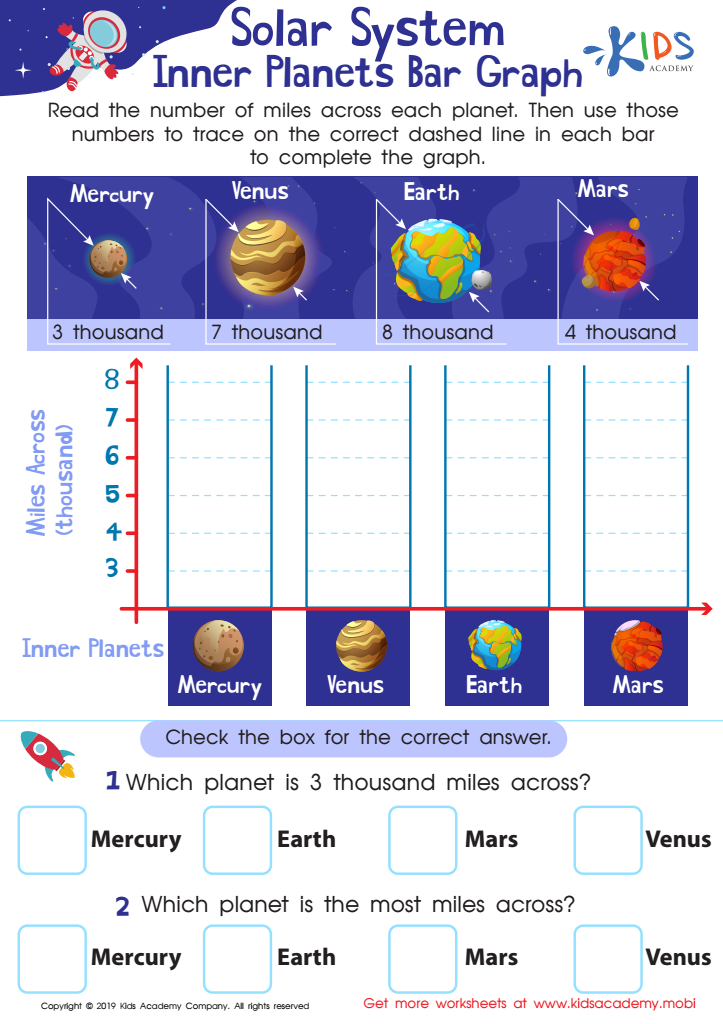Knowledge about planets Worksheets for Kids
1 filtered results
-
From - To


Planets Bar Graph Worksheet
Question/Answer
What does the Knowledge about planets skill mean when it comes to Grade 3 Addition & Subtraction learning?
The "Knowledge about planets" skill in the context of Grade 3 Addition & Subtraction learning likely refers to integrating basic astronomy concepts into math lessons. For example, students might add or subtract numbers related to the planets, such as their distances from the sun or the number of moons they have, to make learning arithmetic more engaging and informative.
How does the mastery of the Knowledge about planets skill affect a student's performance at an early age?
Mastery of knowledge about planets at an early age can significantly boost a student's performance by fostering curiosity, enhancing comprehension skills, and providing a foundation for advanced scientific learning. It helps develop critical thinking, encourages a broader interest in science, and can improve academic confidence by enabling a deeper understanding of the world and the universe.
Why is the Knowledge about planets skill important for Grade 3 students?
Learning about planets in Grade 3 helps students cultivate curiosity about the universe, understand Earth's place in the solar system, and develop foundational scientific knowledge. It fosters critical thinking and inspires interest in science, technology, engineering, and math (STEM) disciplines. This knowledge also encourages environmental awareness and the importance of planetary stewardship from a young age.

 Assign to the classroom
Assign to the classroom












